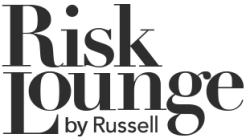
The European Central Bank’s plan to revitalise the Eurozone economy with a €60bn-a-month bond-buying programmer is larger than investors had expected. The ECB’s move brings it closer into line with the US Federal Reserve and the Bank of England, which began buying government debt following the 2008 global financial crisis.
ECB president Mario Draghi said the bank would buy more than €1tn in assets, including government and private sector bonds by September next year. The plan has been met with opposition, particularly in Germany, where political and business leaders fear it could reduce the pressure on European countries to reform their economies.
According to commentators, a number of dangers stand out.
The first threat is to the function of some financial markets. The Bank for International Settlements (BIS) argued in its recent annual report that QE could make it harder for Governments to rein in inflation in the future.
A second risk from QE is of distortions in the market for government debt, which may have sudden and unpredictable consequences. Another worry is that QE reduces market pressure on sovereigns that would otherwise face higher interest rates which leads them to deal less responsibly with their public finances.
There are potential plus sides, however, particularly for exporters, according to The Economist, which reports: “If QE successfully reduced government-borrowing costs, the pressure for ever-stricter austerity measures would ease marginally. Portfolio rebalancing could bring down private borrowing costs. Purchases of foreign assets might weaken the euro, helping exports.”
Against this backdrop of a potentially reinvigorated eurozone economy, CEOs are less optimistic about global growth prospects than a year ago, with 37% of CEOs thinking global economic growth will improve in 2015. This is down from 44% last year, according to a report - 18th Annual Global CEO Survey - issued yesterday by PwC.
Commenting on the survey results, Dennis M. Nally, Chairman of PricewaterhouseCoopers International, says:
"The world is facing significant challenges: economically, politically and socially. CEOs overall remain cautious in their near-term outlook for the worldwide economy, as well as for growth prospects for their own companies. While some mature markets like the US appear to be rebounding, others like the Eurozone continue to struggle. And while some emerging economies continue to expand rapidly, others are slowing. Finding the right strategic balance to sustain growth in this changing marketplace remains a challenge.
"CEO confidence is down notably in oil-producing nations around the world as a result of plummeting crude oil prices. Russia CEOs, for example, were the most confident in last year's survey, but are the least confident this year. Confidence also slipped among CEOs in the Middle East, Venezuela, and Nigeria."
Russell Group’s question to the trade credit insurance and risk market is if major counterparties are increasingly globally spread and are therefore more exposed to geographic risks, how will insurers manage this?
Credit insurance is an essential credit management tool and used to control risks, improve payment behaviour, obtain vital buyer information, and monitor exposures but as the global geopolitical risk environment becomes increasingly complex and fragmented, is there increasing demand for economic data and scenario modelling of underwriter exposures to changes in the economic environment?
Russell Group believes the answer is an emphatic yes and will be exploring the potential for scenario modelling of credit underwriter exposures in upcoming blog posts in 2015.





